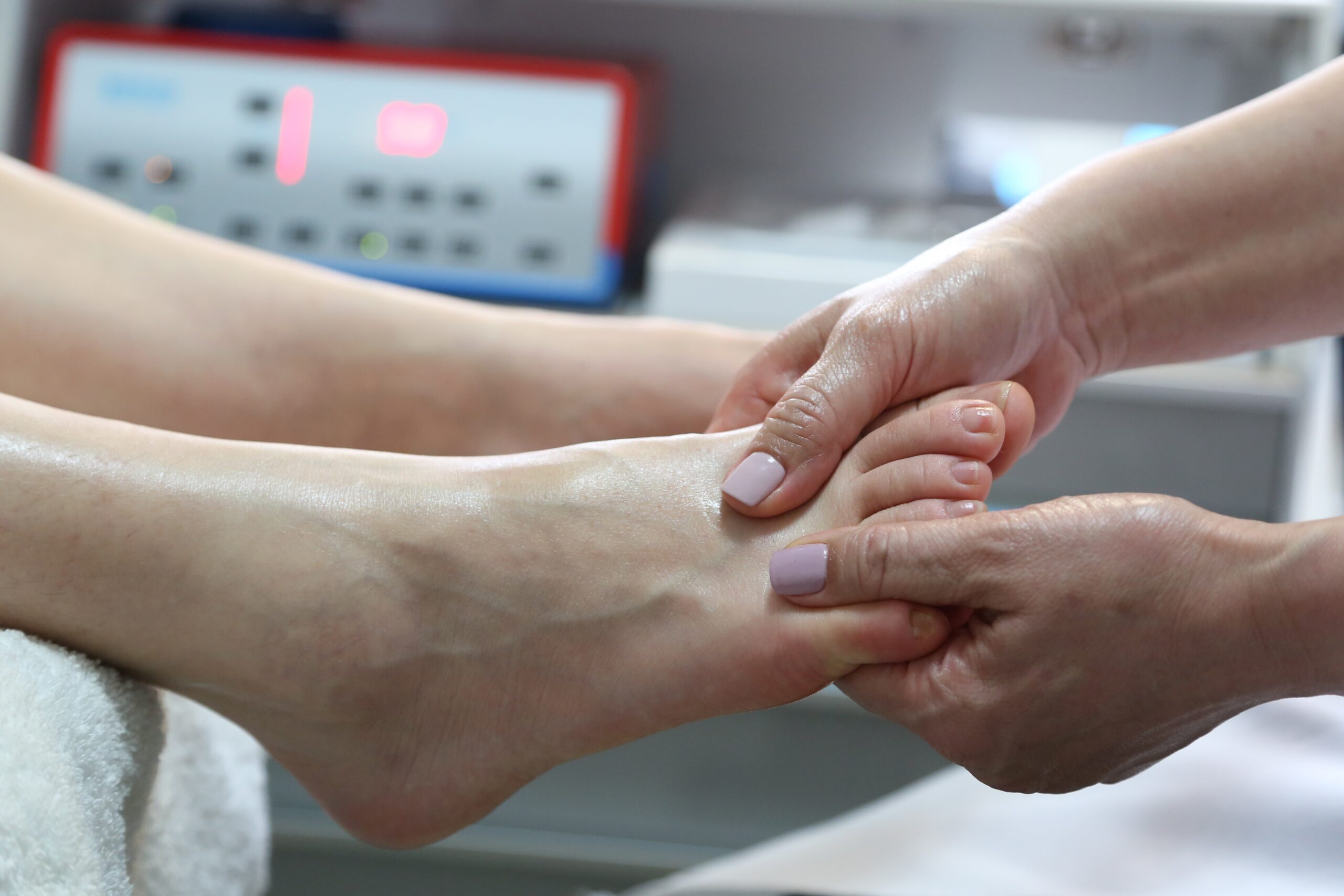We provide the best foot and ankle care at the comfort of your home
throughout Chicagoland of Cook, Kendall, Will, Lake, Kane, DuPage, McHenry counties , we will see You within 24-48 hrs!
We speak English, Spanish, Polish and Russian.

Morton’s Neuroma
Morton’s Neuroma
Morton’s neuroma is one of the three most common disorders of the foot. If you’ve ever felt like you were walking around with a rock in your shoe, then you might be familiar with the symptoms of one of the most common types of neuromas—a Morton’s neuroma. a neuroma is the condition where the nerve between the two toes inward from your pinky toe that becomes irritated and enlarged.
Causes of Morton’s Neuroma
Your nerves are responsible for transmitting impulses to the brain or spinal cord, and impulses from brain to the muscles and organs. A neuroma is a nerve defect resulting from compression or irritation. In the feet, the three most common causes of neuromas are:
- Pre-existing foot abnormalities such as bunions, hammertoes, or flat arches
- Repetitive irritation from years of athletic activity including jogging, running, or court sports
- Injury or other trauma to the foot
Shoes with high heels and/or pointed toe boxes force the feet into unnatural shapes that create pressure at the ball of the foot. Women who typically prefer such footwear are at particular risk of developing neuromas.
Symptoms of Morton’s Neuroma
Keep attention to any changes in your feet, especially persistent discomfort, tingling, burning, numbness, or a feeling like there is something inside or bunched up under the ball of your foot . All of these can be signs of a looming Morton’s neuroma.
The symptoms of Morton’s neuroma don’t usually appear overnight. First, you might notice an odd sensation only when wearing a particular pair of shoes or engaging in a specific activity. You might think that the shoes or the sport is the culprit, and make a change to prevent further discomfort. Eventually, the symptoms will become more pervasive and harder to avoid. As the neuroma enlarges and the temporary irritation to the nerve becomes permanent damage, your symptoms may become more intense or persist for longer periods of time.
Your podiatrist will determine an individualized treatment plan for your Morton’s neuroma.

Client Testimonials
Contact us
- chicagohomefootcare@gmail.com
- 312-998-0974
- 5310 N.Sheridan , Chicago Illinois, USA
- 5950 Hohman Ave , Hammond Indiana, USA
Book Appointment
All Rights Reserved | 2017 |
Crafted by Greenwebmedia.com | Terms & conditions
| Privacy Policy





